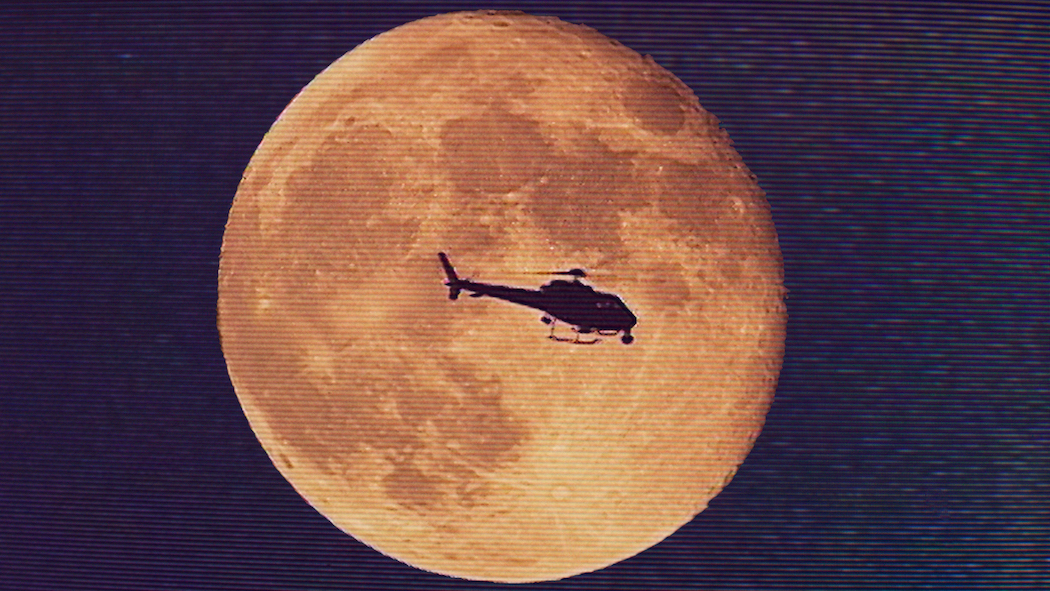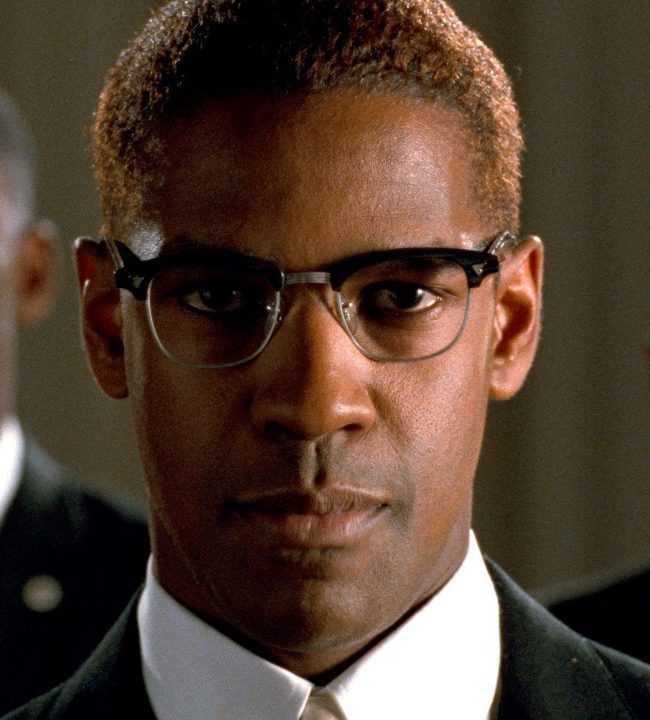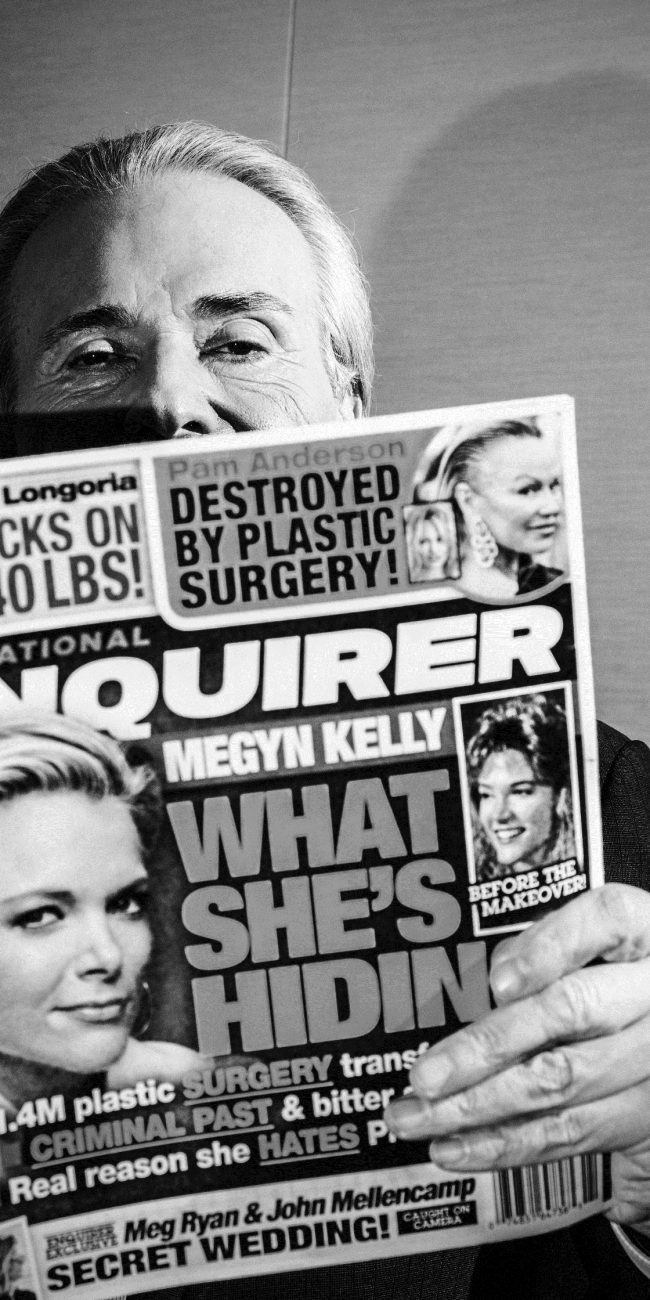WHIRLYBIRD

(Matt Yoka’s debut feature Whirlybird is available now from Greenwich Entertainment. Like what you see here on Hammer to Nail? Why not give just $1.00 per month via Patreon to help keep us going?)
From director Matt Yoka comes Whirlybird (his debut feature), a documentary that combines multiple themes into one fascinating story, replete with numerous engaging characters and lessons. Ostensibly a tale about the early days of helicopter news crews, the movie dives into complicated family histories and dynamics, racial tensions and gender identity, among other topics. All come together seamlessly, for the most part, resulting in a narrative both of its time and timeless. Climb on board for a wild ride.
In the late 1970s and early 1980s, in his late teens and early twenties, intrepid reporter Bob Tur, backed up by his girlfriend and later wife, Marika Gerrard, created the Los Angeles News Service, chasing down breaking news in an era before we all expected it 24/7. The husband-and-wife duo really came into their own once Tur got his pilot’s license, taking to the air in the titular chopper to more easily traverse the City of Angels’ vast distances. With Gerrard on camera, the team’s reputation grew, reaching its peak in the 1990s with their footage from the 1992 riots (following the Rodney King verdict) and the 1994 police chase of O.J. Simpson’s white Bronco (they were first on the scene).
After that, there was no way to go but down, which they did, in fits, starts and steep plunges. As a child of an abusive father, Tur found himself increasingly emulating his own paterfamilias, in his behavior not only towards his wife, but to everyone else around him, too. Eventually horrified at who he had become, he took a long, hard look at himself, and realized he had been living a lie. Today, Bob is now Zoey, forever after referred to in this review by her proper pronoun. We meet her fairly soon in the documentary, and then await details on how and why she transitioned, and what Marika thinks of it all.
For Marika is as much a part of the narrative as Zoey. She loved those first days of adrenaline-fueled journalism, so different from her placid upbringing. Afraid of heights, she nevertheless allowed herself to be talked into her role as airborne videographer, and excelled in the position (her husband’s increasingly strident criticisms of her shots notwithstanding). Whirlybird is equally balanced between her point of view and Zoey’s, with additional voices coming from the couple’s two children and surviving associates (including Lawrence Welk III, grandson of the famous bandleader and TV host). Complicated people make for great cinematic subjects, and Tur, Gerrard and company do not disappoint.
We also learn quite a lot about the history of news gathering in the 1980s and 1990s, watching as technologies evolve, the entire film bolstered by access to copious amounts of archival material, photographed from within and without the helicopter (plus lots of home movies). It both engrosses and horrifies when we see some of the more gruesome aspects of the 1992 riots (including the brutal attack on truck driver Reginald Denny, here replayed in its entirety). Today, Zoey openly discusses how her witnessing of these events affected her view of a community she had heretofore supported, confessing to her own racially tinged reaction. Such honesty, a hallmark of Whirlybird, throughout, refreshes, even if it is painful to hear.
And then there is O.J. The footage that so many of us who were alive at the time remember so well was captured by our two main protagonists. It helps explain why then-Bob, now Zoey, remained employed by a TV station that could not stand her aggressively obnoxious attitude: she and Marika were just that good at finding stories. Sure, Zoey had her license revoked a few times for dangerous flying, but she could, overall, be counted on to be where the action was, with Marika on point, her lens pointed in the right spot.
From there, we follow the collapse and aftermath, meeting our subjects in more peaceful, present-day times. The couple’s daughter, Katy, is now a journalist in her own right (for MSNBC), and their son a doctor; each reflects on their fraught childhood and how they feel about that legacy. Zoey seems calmer now, and very regretful, but also proud of what she accomplished. Marika, in her own right, looks back with an open (and very compassionate) mind at what she and Zoey lived through. Their life was awhirl with images galore, and not all of them bad. That’s something, at least. Roll camera!
– Christopher Llewellyn Reed (@ChrisReedFilm)











